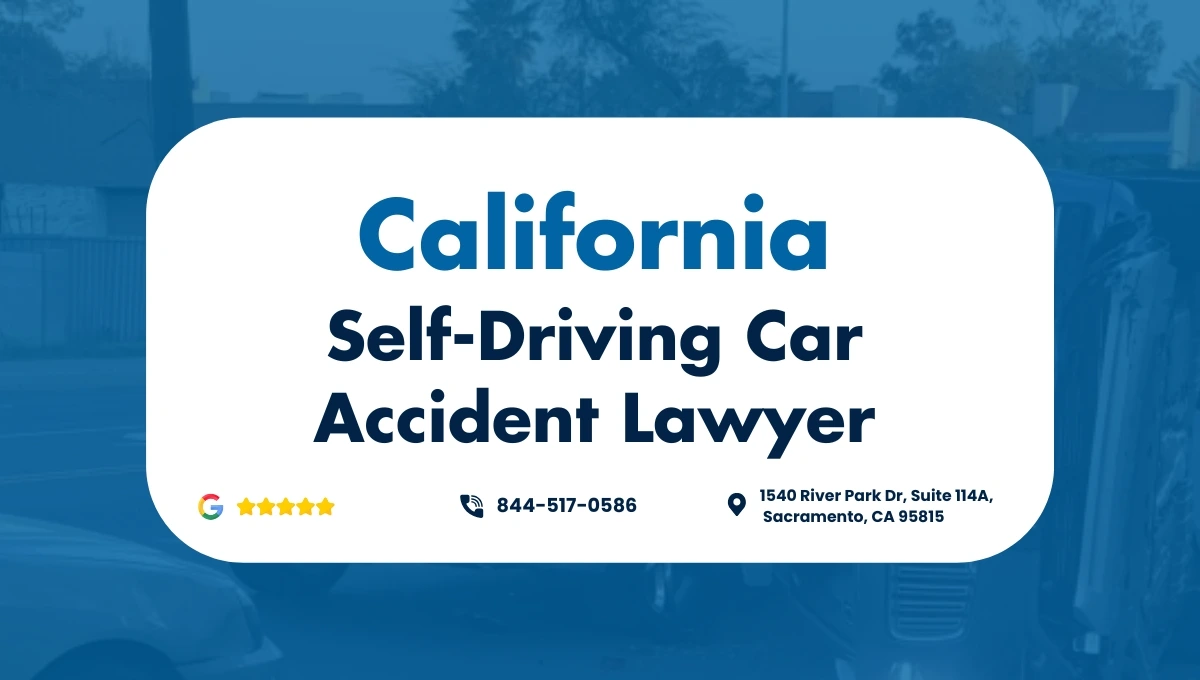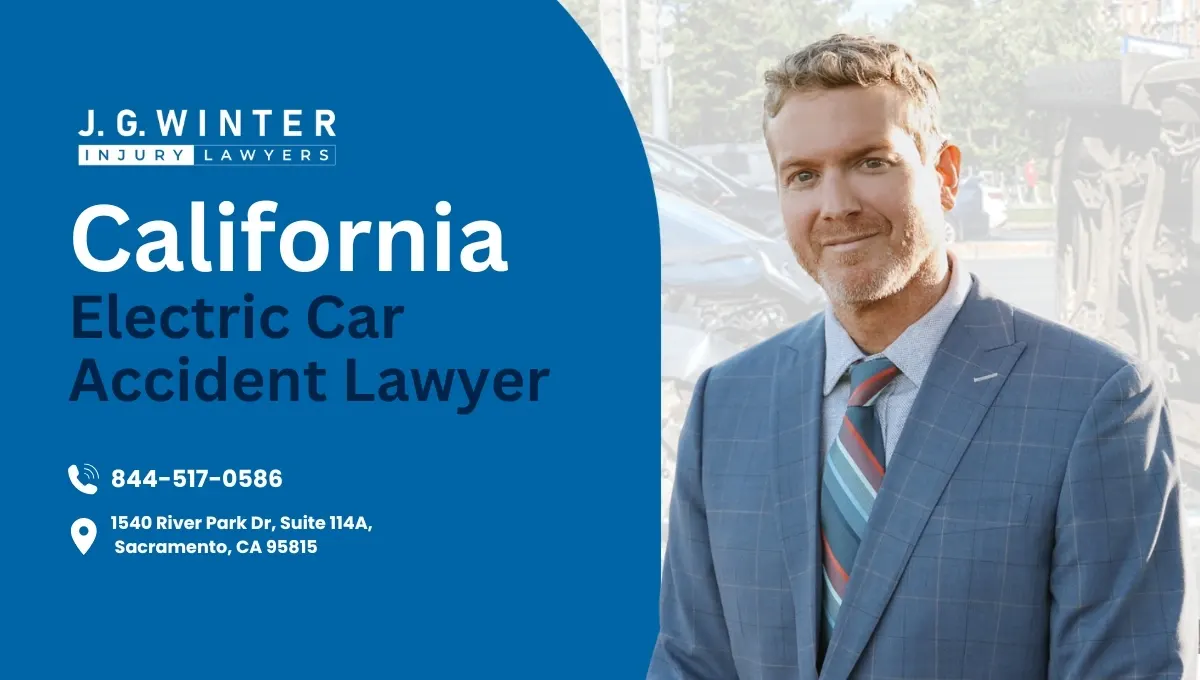Find a Self-Driving Car Accident Lawyer Today
Never face a legal battle alone. We’re here to join forces with you. Hear what attorney Jeremy has to say.
Table of Contents

Importance of hiring proven atorneys

- Medical expenses
- Long-term care
- Rehabilitation
- Loss of wages
- Loss of earning power
- Pain and suffering
We stand behind the principle that financial cost should not hinder your ability to attain experienced legal advocacy. It is our promise that you will not pay anything unless we win your case for you.
What are self-driving cars and how do they work?
Common causes of self-driving car accidents
Technical failures
Failures in technology are among the most common causes of self-driving car accidents. Some of the technical failures include:
- Software glitches: Misinterpreted or delayed actions due to coding errors.
- Sensor malfunctions: Faulty radars, cameras or lidars missing critical hazards.
- Algorithmic errors: Poor decision-making in unusual or unpredictable scenarios.
Example: A faulty sensor failed to detect a pedestrian crossing, leading to a serious collision.
Human factors
Even with automation, human behavior can lead to accidents. Examples include:
- Driver misuse: Ignoring operational instructions or failing to supervise autonomous systems.
- Overconfidence in technology: Believing the car can handle all situations flawlessly.
- Manual errors: Improper interventions during partially autonomous driving.
Environmental challenges
External factors can confuse self-driving systems, causing errors. These factors include:
- Poor road conditions: Potholes, debris, or poorly maintained roads.
- Bad weather: Rain, fog, or snow impairing sensor accuracy.
- Unclear markings: Faded lanes or missing signs disrupt navigation.
AI limitations
Autonomous systems face challenges when confronted with unpredictable real-world situations. These include:
- Decision-making gaps: Struggling to react to unexpected human behaviors like jaywalking.
- Unforeseen scenarios: Difficulty adapting to rare or new driving conditions.
Who is responsible for a self-driving car accident?
Manufacturer liability
Manufacturers can be liable if defects in the vehicle’s design, hardware, or software cause an accident. Common issues include:
- Defective designs: Poorly tested systems leading to dangerous malfunctions.
- Software flaws: Errors in coding cause the vehicle to misinterpret hazards.
- Hardware failures: Faulty brakes, sensors or other components.
Driver responsibility
Drivers can be partial or full responsibility in self-driving accidents if:
- Neglecting operational rules: Failing to supervise or intervene as required.
- Misusing autonomous features: Using self-driving modes in prohibited areas.
Third-party involvement
Other entities can also be held responsible for the crash if:
- Other drivers: Reckless or negligent behavior causing a chain-reaction crash.
- Road maintenance crews: Poorly maintained infrastructure contributing to unsafe conditions.
Immediate steps after an electric car accident
Prioritize safety first
Your safety and that of others involved should always come first:
- Check for injuries: Evaluate yourself and your passengers for visible or severe injuries.
- Move to a safe area: If possible, relocate to avoid further risks from traffic or potential vehicle fires.
Document the scene
Collecting evidence is crucial for filing a claim or building a legal case:
- Take photos and videos: Capture vehicle damage, injuries and the surrounding area.
- Gather witness information: Get the names and contact details of anyone who saw the accident.
Report to authorities and insurers
Notifying the right parties ensures proper documentation of the accident:
- Call the police: File an official accident report detailing the incident.
- Inform your insurer: Begin the claims process by notifying your insurance provider about the accident.
Contact an electric car accident lawyer
Early legal consultation is key to navigating the unique challenges of electric car accident claims. A skilled electric vehicle accident lawyer will help protect your rights, gather evidence and pursue maximum compensation.
Steps to take after a self-driving car accident
Ensure safety and seek medical attention
Start by prioritizing your safety and health after an accident. Focus on these key steps:
- Seek immediate care: Visit a doctor or hospital even for minor injuries.
- Keep medical records: Ensure all injuries and treatments are documented.
Document the accident scene
To support your insurance or legal claim gather the following evidence:
- Take photos: Capture vehicle damage, road conditions and visible injuries.
- Gather witness information: Record contact details and statements.
- File a police report: Create an official account of the incident.
Contact a lawyer immediately
Engage a lawyer early to protect your rights and build a strong case. A lawyer can help by:
- Determining liability: Lawyers identify a fault and gather evidence.
- Handling insurers: Avoid lowball offers by letting lawyers manage negotiations.
- Pursuing compensation: Secure fair recovery for your damages.
What compensation can you seek after a self-driving car accident?
Economic damages
Economic damages are the financial losses from the accident. These include:
- Medical bills: Emergency care, therapy and long-term treatment costs.
- Lost income: Compensation for missed work or reduced earning potential.
- Property damage: Repair or replacement of your vehicle and personal items.
Non-economic damages
Non-economic damages mean the losses that can not be measured in financial terms. These include:
- Pain and suffering: Physical discomfort and emotional distress.
- Loss of enjoyment: Reduced ability to engage in daily activities.
Punitive damages
Punitive damages are only awarded in cases of severe negligence or intentional harm. These include:
- Gross negligence: Reckless disregard for safety by manufacturers or operators.
- Intentional misconduct: Actions knowingly placing others at risk.
Challenges in self-driving car accident cases
Legal complexity
Determining liability in self-driving car accidents is difficult due to constantly evolving laws and unpredictable case scenarios. Key factors include:
- Rapidly evolving laws: Legislation around autonomous vehicles is still being tested and updated.
- Unpredictable scenarios: Many cases involve unique situations without clear legal precedents.
Technical investigations
Proving fault in self-driving car accidents often requires a detailed examination of technical data. Key evidence includes:
- Black box data: Records the vehicle’s actions such as speed, braking and decision-making, just before the crash.
- AI logs: Provides insight into how the car’s algorithms responded to the incident.
- Expert input: Testimony from engineers and accident reconstruction specialists can clarify technical failures.
Insurance disputes
Self-driving car accident claims frequently involve disputes between insurers over liability and coverage. These disputes typically include:
- Blame-shifting: Insurers argue whether the fault lies with the driver, manufacturer or another party.
- Policy exclusions: Some insurance policies don’t fully cover incidents involving autonomous vehicles
Why hire a self-driving car accident lawyer?
In-depth knowledge of laws and technology
- Lawyers stay updated on complex autonomous vehicle regulations.
- They understand the technical systems behind self-driving technology.
Access to technical expertise
- Collaborate with engineers and accident reconstructionists.
- Leverage black box data and AI logs for evidence.
Strong negotiation and litigation skills
- Maximize settlements during talks.
- Build compelling cases for court when necessary.
Why choose J.G. Winter to handle your self-driving car accident case?
Proven track record
- Years of success resolving complex self-driving car accident cases.
- Expertise in catastrophic personal injury claims like spinal injuries, brain injuries and wrongful death.
- Recovered millions of dollars for clients through skilled advocacy and strong legal defense.
Client-first approach
- Personal attention from Jeremy Winter, ensuring clients feel valued and supported.
- A compassionate approach: “I care because I’ve been there.”
- Dedication to securing maximum compensation to help clients rebuild their lives.
- Contingency-based fees: You only pay if we win your case.
Local expertise in Sacramento and surrounding areas
- Comprehensive understanding of local laws, court procedures and regulations.
- Familiarity with regional nuances for a tailored, effective legal strategy.
- Proven ability to hold responsible parties accountable in California courts.

JC Gabrintina
- Verified Client
Thank you so much to Jeremy and his entire team for their support and getting me through a troubling time in my life. They were able to negotiate a fair settlement for me and my family and I sincerely appreciate everything they’ve done. After 2 years, I have the justice I deserve. Please consider them for all your personal injury cases, near or far (I live in LA!), they’ve got your back.
Lucy Velásquez
- Verified Client
I want to thank Attorney Jeremy and his team at J.G. Winter Injury Lawyers for how much they have done for me. I can’t imagine going through this process alone. Having them in my corner was like having a guardian Angel on my shoulder; I felt like I was part of their family. They are so kind, and caring, yet aggressive and ready to fight for you when it comes to dealing with the insurance companies and greedy corporations. They really know their stuff, and won’t back down from anyone. I hope you never go through what I went through but if you ever find yourself badly injured and needing help, look no further than J.G. Winter Injury Lawyers…you won’t regret it.
FAQs
Are self-driving cars safer than human-driven vehicles?
Yes! Self-driving cars are designed to reduce human error which causes most accidents. However, their safety depends on reliable technology and real-world conditions.
Do self-driving cars follow traffic laws differently than human-driven cars?
What happens if a driverless car hits you?
Will my insurance cover an accident with a self-driving car?
Yes! Your insurance may cover an accident with a self-driving car, but coverage depends on your policy terms and accident details.
Can self-driving cars be held legally responsible for accidents they cause?
Yes! Manufacturers or operators can be liable for self-driving car accidents if defects or technology errors cause the crash.
What kind of evidence is needed to prove fault in a self-driving car accident?
You’ll need black box data, AI decision logs, witness statements, photos of the scene and expert evaluations to prove fault.
How do self-driving car accident claims differ from traditional ones?
Contact us today for expert legal assistance
Local courthouses serving California
Local courthouses serving California
California local resources
Hospitals
Law Enforcements
Fire Department
Landmarks
Chiropractors
Libraries
Motor Vehicle Administration
Non Profits
Community Event Centers
Top Rated Body Shops
- 102 Natoma St, Folsom, CA 95630
- 916-702-7870
- Mon – Fr: 9:00 – 18:00
- 1540 River Park Dr, Suite 114A, Sacramento, CA 95815
- 844-734-2626
- Mon – Sat: 9:00 – 18:00
- 304 W Harding Way, Stockton, CA 95204
- 209-502-2586
- Open 24 hours
- 5110 N 67th AVE Glendale, AZ 85301-6541
- (602) 782-5715
- Open 24 hours